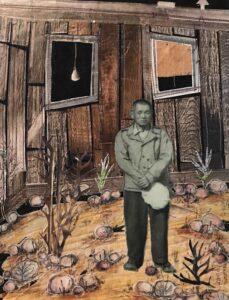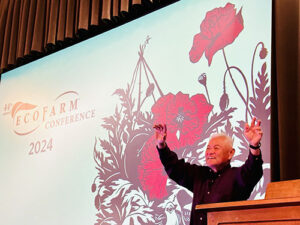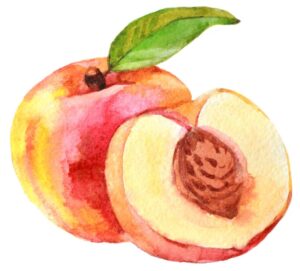A Tale of Prison, Peaches, and Persistence
- By Erin Mittelstaedt
- Reading Time: 2 mins.
Last year, my family and I had the honor of hearing artist Jeanie Kashima, a longtime friend of my parents, speak about her amazing collages at Rosie the Riveter WWII Home Front National Historical Park. Jeannie is Japanese American, and she was born in the Topaz Relocation Center in Utah where her family was imprisoned during World War II. That experience inspired her collages.

Learn more about Jeanie and her artwork.
A lot of people don’t know much about this dark time in American history. But I think it’s important for us to remember that in 1942, the U.S. government forced Japanese Americans (many of them US citizens) into “relocation centers” because of an executive order President Roosevelt issued in response to the bombing of Pearl Harbor. Families were incarcerated for up to four years.

After Jeanie’s talk, I read this staggering statistic in the park’s Visitor Education Center: In the 1940s, prior to the internment of Japanese Americans, “Japanese farmers were responsible for 40 percent of all vegetables grown in California, including nearly 100 percent of all tomatoes, celery, strawberries and peppers.” Internment changed all of that. By 1960, three-fourths of America’s Japanese American farmers were no longer farming. In many cases, they farmers were forced off their land and couldn’t reclaim it when they returned home.
There’s no way to calculate the devastation that internment caused—not only to families and communities but to our food system.
Here at The FruitGuys, we have a personal connection to some of these farming families. Farmers Joe Takashi Masumoto and Carole Yukino Sugimoto were both imprisoned with their families from 1942–1946 at the Gila River Relocation Center in the Arizona desert. Two years after their release, they got married and started Masumoto Family Farm in Del Rey, California, growing forty acres of grapes, plums, peaches, and nectarines.

Now, almost eighty years later, the Masumoto family is still farming stone fruit. Their farm has been certified organic since the 1980s, and they’re known for their bright and juicy Sun Crest peaches, which they’ve grown for over fifty years. At the start of each summer, my team and I start counting down the days until we can taste Masumoto peaches and add them to our fruit boxes.
 We are honored to feature Masumoto peaches each summer and love to support their family farm. You can learn more about the farm here.
We are honored to feature Masumoto peaches each summer and love to support their family farm. You can learn more about the farm here.
May is Asian American and Pacific Islander Heritage Month, and I wrote this newsletter in honor of the Masumoto family and all of the other AAPI farmers we work with at The FruitGuys. Thank you for your endurance, your dedication, and, most of all, your fabulous fruit.


